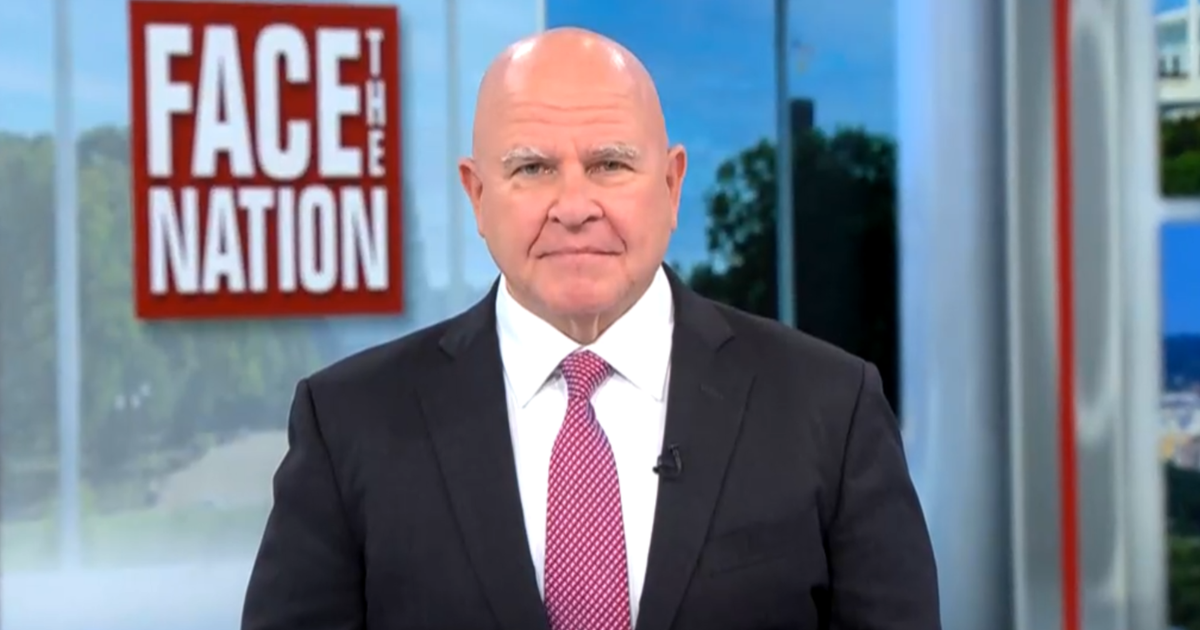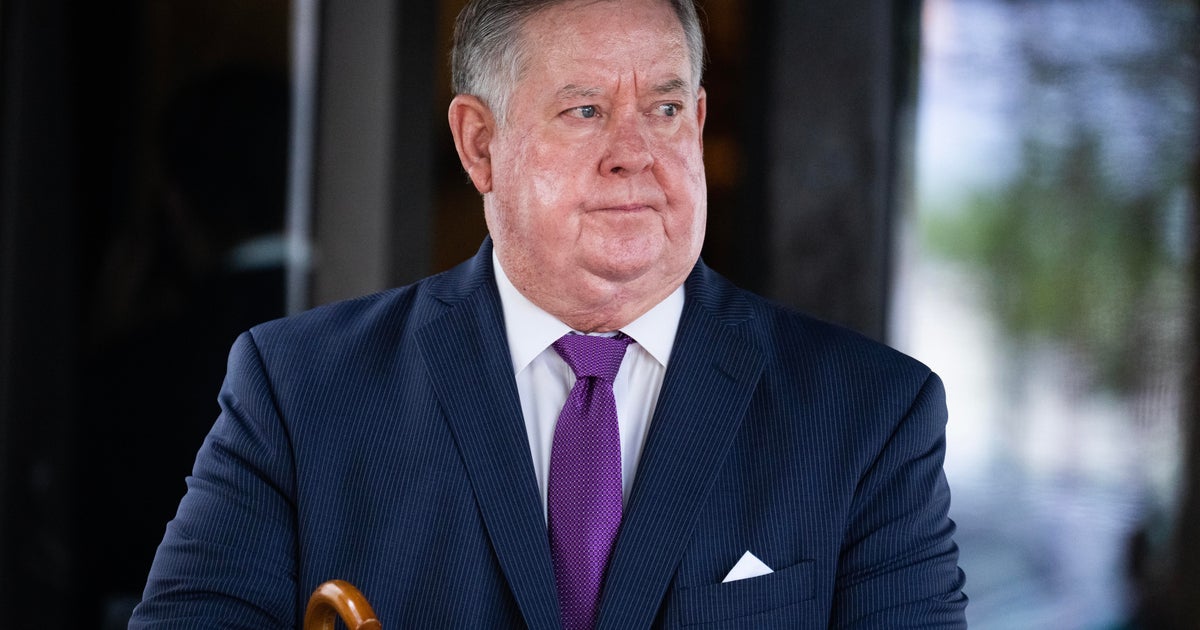CBS News
Kansas governor vetoes ban on gender-affirming care for minors, anti-abortion bills

Kansas’ governor on Friday vetoed a proposed ban on gender-affirming care for minors, a measure to require more reporting from abortion providers and what she called a “vague” bill making it a crime to coerce someone into having an abortion.
Democratic Gov. Laura Kelly’s actions set up a series of confrontations with the Republican-supermajority Legislature over those issues. The measures appeared to have the two-thirds majorities needed in both chambers to override vetoes, but GOP leaders’ success depends on how many lawmakers are absent on a given day, especially in the House.
The two-term governor, who is term-limited, is a strong supporter of abortion and LGBTQ+ rights. Republicans control the Legislature, and they’ve joined other GOP lawmakers across the U.S. in rolling back transgender rights.
But Kansas has been an outlier on abortion among states with Republican legislatures because the Kansas Supreme Court declared in 2019 that the state constitution protects abortion rights, and a statewide vote in August 2022 decisively affirmed that position.
“Voters do not want politicians getting between doctors and their patient by interfering in private medical decisions,” Kelly wrote in her veto message on the abortion reporting bill.
Kelly did allow one GOP proposal on a social issue highlighted by Republicans across the U.S. to become law without her signature. Starting July 1, pornography websites must verify that Kansas visitors are adults. Kansas will follow Texas and a handful of other states despite some concerns about privacy and how broadly the law could be applied.
In rejecting an attempt to have Kansas join at least 24 other states in banning or restricting gender-affirming care for minors, Kelly argued that a ban “tramples parental rights” and targets “a small group.”
“If the Legislature paid this much attention to the other 99.8% of students, we’d have the best schools on earth,” she wrote.
The Kansas bill against gender-affirming care would bar surgery, hormone treatments and puberty blockers, limiting care for minors to therapy.
“Hopefully this will be the end of that, at least this year, and they don’t decide to waste anyone’s time anymore,” Jenna Bellemere, a transgender University of Kansas student, said after learning of the veto.
The bill also would require that the state revoke the licenses of any doctors violating the ban and bar recipients of state funds for treating children or state employees who work with children from advocating gender-affirming care for them. It would ban the use of state dollars and property on such care, which restricts the University of Kansas Medical Center in Kansas City, Kansas.
Supporters of the bill argue the ban will protect children from experimental, possibly dangerous and potentially permanent treatments. They have cited the recent decision of the National Health Service in England to no longer routinely cover such treatments. Senate President Ty Masterson, a Wichita-area Republican, said of Kelly, “The radical left controls her veto pen.”
“Laura Kelly will most surely find herself on the wrong side of history with her reckless veto of this common-sense protection for Kansas minors,” said Kansas House Speaker Dan Hawkins, a Wichita Republican.
But U.S. states’ bans go against the recommendations of major American health care groups, including the American Medical Association and the American Academy of Pediatrics. Also, many medical professionals say providing such care makes transgender children less prone to depression or suicidal thoughts.
Last year, Republican legislators overrode Kelly vetoes to ban transgender girls and women on female K-12 and college sports teams and end the state’s legal recognition of transgender people’s gender identities. Because of the latter law, Kansas no longer allows transgender people to change the listing for sex on their driver’s licenses or birth certificates.
Republican lawmakers also have continued to press for new laws on abortion, despite the August 2022 vote, arguing that voters still support “reasonable” regulations and support for pregnant women and new mothers.
“Once again, Governor ‘Coercion Kelly’ has shown how radical she is when it comes to abortion, lacking basic compassion for women who are pushed or even trafficked into abortions,” Danielle Underwood, spokesperson for Kansans for Life, the state’s most influential anti-abortion group, said in a statement.
The anti-coercion bill would punish someone convicted of making a physical or financial threat against a woman or girl to push her to have an abortion with up to a year in prison or a fine of up to $10,000. In her veto message, Kelly noted that it’s already a crime to threaten someone else.
Critics said it’s written broadly enough that it could apply to a spouse who threatens divorce or a live-in boyfriend who threatens to leave unless their partner gets an abortion.
The reporting bill would require providers to ask their patients why they want to terminate their pregnancies and report the information to the state health department. Kelly and other critics contend it’s invasive and unnecessary, but supporters argue that the state needs better data about why women and girls have abortions to help set policy.
“These stigmatizing bills were not crafted to improve the health and well-being of Kansans,” said Emily Wales, president and CEO of Planned Parenthood Great Plains, which operates three clinics providing abortions in Kansas. “They were merely meant to shame reproductive care.”
CBS News
Pope Francis denounces military attacks that go “beyond morality” when asked about Israel’s recent attacks

Pope Francis criticized military attacks that go “beyond morality” after he was asked about Israel’s recent escalation of attacks in Lebanon that targeted top Hezbollah commanders.
Francis made the comments while en route home from Belgium when reporters asked him to weigh in on Israel’s airstrike that killed Hezbollah’s longtime leader Hassan Nasrallah on Friday. The strike in Beirut targeted an area greater than a city block and reduced several buildings to rubble.
Hezbollah confirmed that the airstrike also killed Ali Karaki, one of the group’s senior commanders. At least seven top commanders in the Iran-backed militant group have been killed in recent days by Israel strikes.
Andrew Medichini / AP
Francis, who didn’t mention Israel by name and said he was speaking in general terms, said that “the defense must always be proportional to that attack.”
“When there is something disproportionate, there is a dominating tendency that goes beyond morality,” he said. “A country that does these things — and I’m talking about any country — in a superlative way, these are immoral actions.”
He said that even if war itself is immoral, there are rules that “indicate some morality.”
“But when you don’t do this … you see the bad blood of these things,” he said.
The death of Nasrallah has sent shockwaves throughout Lebanon and the Middle East, where he has been a dominant political and military figure for more than three decades.
President Biden said the Israeli strike was a “measure of justice” for victims of Hezbollah’s “reign of terror.”
Francis has tried to strike a balance in his comments on the Oct. 7 Hamas attack on Israel and the conflicts in Gaza and southern Lebanon that have ensued. He has called for an immediate cease-fire, for the release of hostages taken by Hamas and for humanitarian aid to get to Gaza.
Francis repeated that he calls the Catholic parish in Gaza every day to see how they are doing.
CBS News
Transcript: H.R. McMaster, former National Security Adviser, on “Face the Nation with Margaret Brennan,” Sept. 29, 2024

The following is a transcript of an interview with H.R. McMaster, CBS News contributor and former National Security Adviser, on “Face the Nation with Margaret Brennan” that aired on Sept. 29, 2024.
ROBERT COSTA: We’re joined now by retired Lieutenant General H.R. McMaster. He did serve as National Security Advisor in the Trump administration, but he has not endorsed either candidate in the presidential race this time around. He’s also a CBS News contributor and the author of a new book, “At War With Ourselves.” Good morning, General, thanks for being here.
LT. GENERAL H.R. MCMASTER: Robert, great to be with you.
ROBERT COSTA: You just heard from retired General McChrystal. He has made an endorsement. You have not. Why not?
LT. GENERAL H.R. MCMASTER: Well, Robert, I respect his- you know, his ability to make that decision and right to make that decision. But what concerns me these days is the military is getting drug in to partisan politics, and you hear really both parties trying to involve the military. Now, of course, General McChrystal is endorsing Vice President Harris as an individual, but I think sometimes it’s difficult to differentiate between an individual endorsement and the military getting drug into partisan politics, right? You hear- you hear this narrative these days, you know, from some people on the far right, that the military is woke, or from the far left that the military is extremist. Hey, the military is not woke or extremist, right? The military is doing its duties under the Constitution and for whoever’s elected commander in chief. So that’s been a big part of my reticence. And then the other role is, I think, Robert, I mean, the other reason is, I don’t think anybody needs me to tell them how to vote, right? In the book and in other venues, I lay all- all of it out, right, the good, the bad, the ugly, you know, of- of the Trump administration. But I do so in context of the eight Obama years that followed it and the four- that preceded it, and the four Biden years that followed it. So I think voters should make their own decisions, and what I’ve tried to do is help inform voters, no matter what their- which way they’re leaning.
ROBERT COSTA: Let’s turn to the Middle East. What’s your view? You heard from Senator Cotton, you heard from General McChrystal. How do you see a possible war on the horizon, if any, between Israel and Iran? Or is there something that can be done, especially by the United States, to contain what is happening?
LT. GENERAL H.R. MCMASTER: Robert, I would say there already is a war between Israel and Iran, and it’s a- it’s a war that Iran has been waging for four plus decades. Nasrallah, who was there at the beginning of Hezbollah, who was there when they killed 241 Marines in- in Beirut, and began a campaign against not only who Nasrallah called the cancerous boil of Israel, but the great Satan of the United States. And Nasrallah, remember what his catchphrase was at the end of like, almost- many of the speeches that he gave, which was, the Jews are vulnerable because they love life. We can take that away from them. We will win, because they love life and we love death. And so the Israelis have had, really, no choice. Remember, right after the heinous attacks of October 7, that’s when Hezbollah launched rockets at Israel in solidarity with- with Hamas. That resulted in the evacuation of 10% of Israel’s territory. About 70,000 Israelis are out of their homes. And so I think Israel is taking the right approach to escalate against an enemy who’s been able to escalate, really, on their own terms, with impunity. And I think increasingly the United States has to act like we know what the return address is, in Iran. Now’s the time to double down on the pressure on Iran, to dry up the cash flow available–
ROBERT COSTA: What does that mean, though? Just in terms of financial action, or do you expect there might need to be a U.S. military role down the line for the United States in the Middle East?
LT. GENERAL H.R. MCMASTER: Well, there already is- is a military role–
ROBERT COSTA: In terms of ground troops or air strikes?
LT. GENERAL H.R. MCMASTER: Well, I think- I think both- all of this should be kind of on the table. And I think we should act like we know where those rockets are coming from, the 150,000 rockets that Hezbollah has pointed at Israel, the 40,000 or so members of Iran’s proxy army in Syria, the Palestinians, along with Jihad and Hamas in the West Bank, what remains of Hamas in Gaza, those were all trained, equipped, supplied by Iran, to create this ring of fire around Israel, and to destroy Israel and kill all the Jews. The precursor to that is to act against us. Robert, 175 attacks against U.S. forces and U.S. installations by Iranian proxies since October 8 of last year.
ROBERT COSTA: General, you say the United States and Israel should be in lockstep, or at least aligned, as they move forward. But the Pentagon has said, the Biden administration has said, they were not informed about these attacks ahead of time. So what does that say about the real state of play between Israel and the United States?
LT. GENERAL H.R. MCMASTER: I think what Israel has determined is that it had to protect its security and secrecy around this operation. If you think about the blows that they delivered to Hezbollah in the- in the past week, 10 days, it’s really unprecedented, you know, killing so many of them, winning so many with the beepers and then the walkie talkies, and then when they couldn’t talk securely, they met at a location in Beirut, struck that target. So, Nasrallah has- has been taken out, but so has all the cadre around him. These are decades long of relationships and knowledge, and so I think now is the time to put on the financial sanctions. Why did the Biden administration not enforce the Trump era sanctions against Iran, and allowed about $100 billion to flow to that theocratic dictatorship? Now’s the time to reverse that policy.
ROBERT COSTA: So that- Israel has taken out military targets. Lebanon is saying that many civilians have been killed. What should the U.S. do in terms of protecting civilian deaths moving forward, talking to Israel about that issue, what needs to be done on the civilian front?
LT. GENERAL H.R. MCMASTER: Well, what you want is, you need firepower to overwhelm this enemy, but you also want to apply that firepower with- with discrimination.
ROBERT COSTA: Is that being done?
LT. GENERAL H.R. MCMASTER: Well, it depends on the calculus at the time. Remember, the bunker in which Nas- Nasrallah was killed was underground, several stories underground, underneath where? An apartment complex. And so it’s Hezbollah. Remember, he said, we love death. Remember what Hamas leadership said just before the October 7 attacks? The purpose, one of the purposes, of that attack, was to get some of their own people killed so they could use that against Israel. So it’s really important, I think, at this stage, to continue to impress on the Israelis, apply firepower with discrimination, but also to recognize that these terrorist organizations are the principal causes for the violence and destitution and the suffering of the people in Gaza and the people in Lebanon. Look at the great promise of Lebanon. It’s a beautiful country. Look at what Hezbollah has done to that country, with their alliance with the Syrians in the 2000s, remember, we had the Cedar Revolution in 2006 after Hariri’s assassination. I mean, the Lebanese people are destitute, in large measure because of Hezbollah.
ROBERT COSTA: And just finally here, former President Donald Trump, who you know well, he met with President Zelenskyy in recent days. He keeps talking about being able to broker something between Zelenskyy and Putin. Do you buy it?
LT. GENERAL H.R. MCMASTER: You know, I don’t really buy it in terms of, you know, hey, in 24 hours, it can be- I think it’s a real- it’s a real myth, right? It’s a real misunderstanding of war to assume that you can get a favorable political outcome without a favorable military outcome. That’s never really happened in war. And so I think the right course of action is, if you want to accelerate toward progress, toward a settlement, is to convince Putin that he’s losing the war. I think that’s the only way you get a favorable settlement. How do you do that? You demonstrate our resolve to continue to support the Ukrainians as they defend themselves against this continued onslaught by the Russians. That’s how you get to, maybe, favorable conditions for negotiation.
ROBERT COSTA: General McMaster, we appreciate you coming on “Face The Nation.” Hope you come again. Thank you very much.
LT. GENERAL H.R. MCMASTER: Thank you.
ROBERT COSTA: And we’ll be back in a moment.
CBS News
Open: This is “Face the Nation with Margaret Brennan,” Sept. 29, 2024

Watch CBS News
Be the first to know
Get browser notifications for breaking news, live events, and exclusive reporting.








